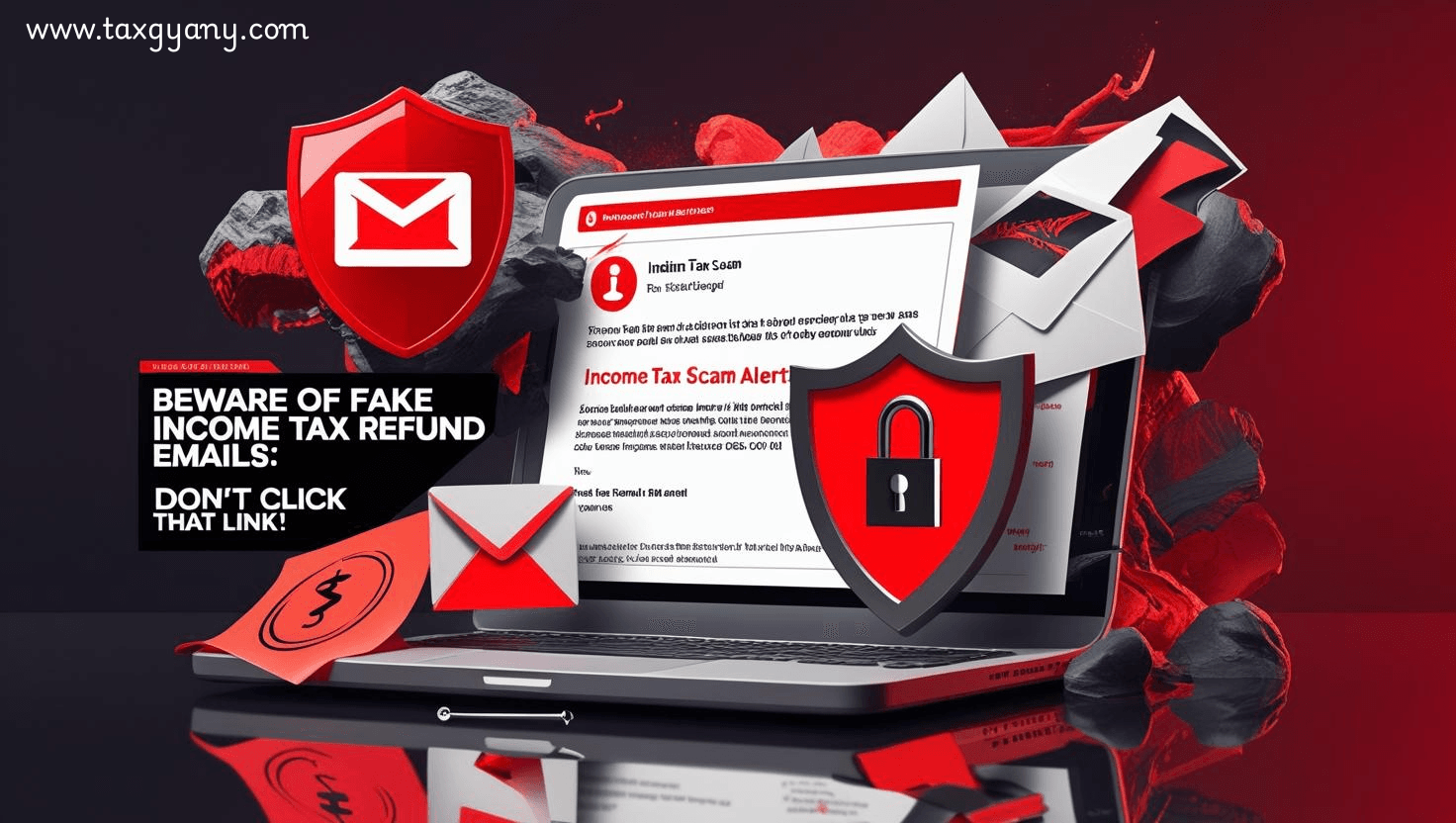Beware of Fake Income Tax Refund Emails: What Every Taxpayer Should Know
With tax season underway and millions of taxpayers expecting refunds, cybercriminals are also getting active. Recently, a new wave of phishing emails pretending to be from the Income Tax Department has emerged. These emails promise refunds but are designed to steal your personal and financial information.
If you’ve received an email mentioning a tax refund of ₹60,000 and asking for manual verification, read this blog before you click anything.
⚠️ What’s the Scam All About?
Fake emails are being circulated with subject lines like:
“Income Tax Refund Confirmation – Manual Verification Required”
These messages claim you’re eligible for a tax refund and must complete a manual verification process by clicking a link or opening an attachment.
They often mention:
Refund amounts (e.g., ₹60,000)
References to RBI regulations or PMLA (Prevention of Money Laundering Act) compliance
A request to confirm bank account or PAN card details
The goal is simple: to trick unsuspecting users into sharing sensitive information.
🔍 What Makes These Emails Suspicious?
The Press Information Bureau (PIB) Fact Check Unit has flagged these emails as FAKE.
Here’s how you can spot the red flags:
The sender’s email ID is not from @gov.in domain.
You’re asked to verify personal details like:
PAN
Bank account number
Debit card info
OTPs or login credentials
The email contains unsecured links or .zip/.pdf attachments.
✅ What the Real Income Tax Department Does
The Income Tax Department of India may contact taxpayers via email or SMS for valid reasons like:
ITR processing updates
Status of refund
Response to notices or compliance requirements
However, they will NEVER:
Ask you to click on links to verify refunds
Request your PINs, OTPs, or passwords
Send communication from suspicious email domains
Official communication only comes from addresses like:
donotreply@incometax.gov.inno-reply@tdscpc.gov.inhelpdesk@incometax.gov.in
Always double-check the sender before taking any action.
🧠 What Is Phishing?
Phishing is a cybercrime where attackers pretend to be legitimate institutions to lure individuals into giving away personal or financial data.
These scams often look like real websites or emails from trusted government bodies. Once you share your info, the fraudsters can:
Withdraw funds from your bank
Access your income tax portal
Misuse your identity for fraud
📌 How to Stay Safe from Fake Income Tax Emails
Here are simple but effective steps to protect yourself:
1. Do NOT Click Suspicious Links
Never click on links from unknown senders.
Don’t open attachments unless you trust the source.
2. Verify the Sender’s Email Address
Ensure it ends with
@gov.inor other official domains.
3. Use Strong Cybersecurity Tools
Install antivirus and anti-spyware software.
Keep your browser, firewall, and OS updated.
4. Report the Scam
Forward such suspicious emails to:
📧
webmanager@incometax.gov.in📧
incident@cert-in.org.in
Also report phishing to:
🛡️ Final Words: Stay Alert, Stay Secure
Your PAN, Aadhaar, and bank details are valuable. Don’t let cybercriminals trick you into handing them over.
Even if an email looks official, stop and verify. Remember, the Income Tax Department will never ask for sensitive information through email.
As cybercrime becomes more advanced, awareness is your best protection. Share this post with your friends and family to help keep them safe too!
🔗 Useful Links
Fake income tax refund email, Income tax phishing scam 2025, how to report phishing emails, income tax refund verification scam, cyber security for taxpayers India, fake email alert income tax, income tax fraud email alert, PIB fact check scam, ITR refund fraud India, phishing attack income tax

